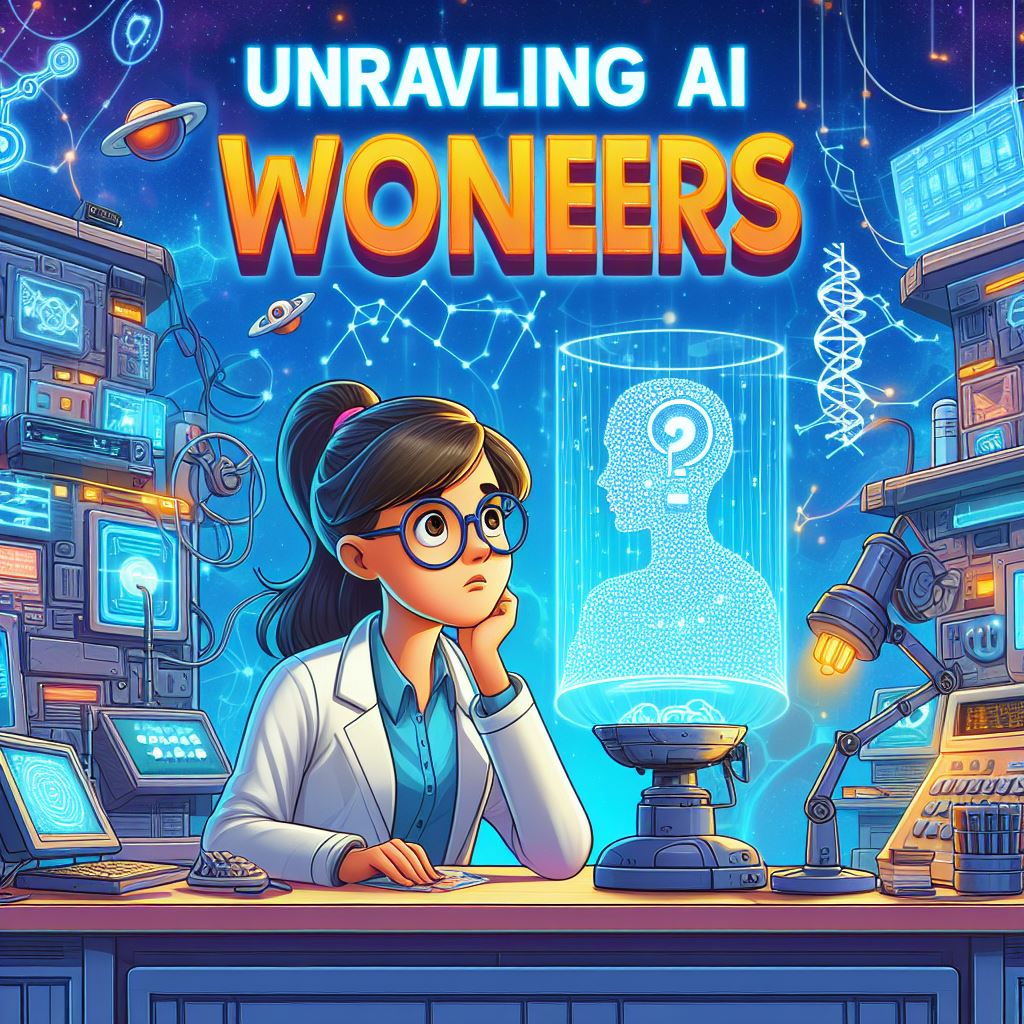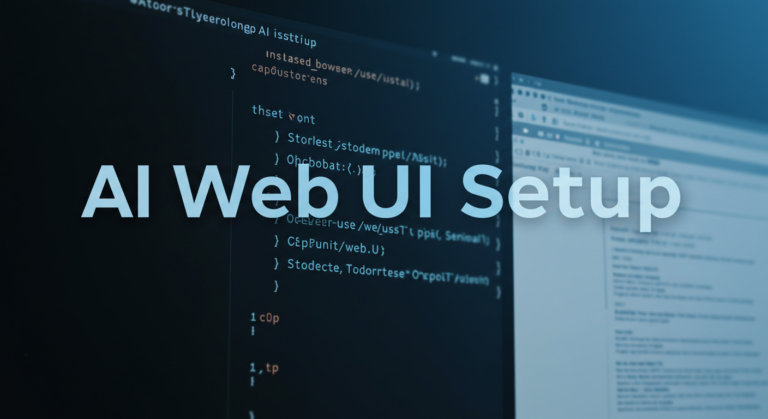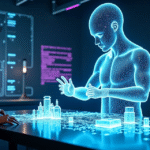What is OpenAI’s Super-Secret Project Q star?

OpenAI, the company behind chatGPT and other groundbreaking AI innovations, is secretly working on a new project called Q* (pronounced Q-Star) that could represent a major leap forward in artificial intelligence. Very little is officially known about Q*, but it is described as an AI breakthrough so alarming that it contributed to both the firing and rehiring of OpenAI CEO Sam Altman.
This article will analyze what we know so far about the mysterious Project Q* – from its capabilities to its risks. We’ll also explore why this level of AI could be so transformative compared to today’s systems.
Understanding the Hype Around Project Q*
To comprehend the intrigue and concern around OpenAI’s latest discovery, we first need to understand what sets it apart from other AI models like chatGPT.
Current AI Still Has Major Limitations
While systems like chatGPT showcase impressive language processing abilities, they have notable weaknesses when it comes to human-like skills such as:
- Reasoning – Making logical inferences and connections between concepts.
- Math – Solving abstract problems with variable inputs.
- Heuristics – Formulating general rules of thumb for decision making.
For example, if you asked chatGPT a random new math question like “What is 14,709 + 879 + 78 + 12 equal to?” it would likely struggle to systematically solve it. Even simple reasoning and planning also trip up today’s AI.
The Quest for Artificial General Intelligence
What makes Q* so intriguing is that it may represent meaningful progress towards artificial general intelligence (AGI) – AI that can learn and reason as well as (or better) than humans across a broad range of domains.
“The day will come when the digital brains inside our computers will become as good and even better than our biological brains.”
AGI has been OpenAI’s holy grail from the start. Unlike narrow AI trained for specific tasks, AGI could potentially:
- Solve novel problems in creative ways
- Make connections between diverse concepts
- Continuously learn from its mistakes
Experts like Yoshua Bengio compare it to skills needed for training systems that interact with and adapt to the real world, just as we train pets through reinforcement strategies.
In other words, AGI wouldn’t just match human intellect – it would mimic the process of human thinking itself.
How Project Q* May Be Different
While full details remain hidden, there are hints that Q* adopts new training methods that focus less on outputs and more on the step-by-step evolution of an AI model’s thoughts, similar to how we might guide a student’s work by reviewing their reasoning rather than just marking their final exam question right or wrong.
Early indications suggest Project Q* may have succeeded where all other AI has failed – solving complex mathematical problems with strong reliability not by brute-force learning closed datasets, but via an inherent comprehension of abstract concepts.
Such an achievement could indicate a radically more developed form of reasoning and general learning. This prospect is exciting yet alarming.
The Societal Risks and Promises of Human-Level AI
Allowing AI to broadly emulate our own intelligence carries both tremendous opportunity and unpredictable risk.
Could AI Become Too Powerful

The level of AI sophistication speculated with Project Q* raises valid concerns, considering technologies often bring unintended consequences:
- Weaponization of AI for malicious goals.
- Automating dangerous or unethical functions.
- AI making destructive decisions without appropriate safeguards.
OpenAI researchers reportedly warned superiors that Q* may reach or surpass human reasoning, implying associated risks of existential crises, runaway AI, and catastrophic events if mishandled.
Given AI’s accelerated growth curve, Project Q* could rapidly advance from solving math problems to complex decision making across domains like science, engineering, law, and governance. Its future impacts may be impossible to model or contain.
Transforming Society in Unprecedented Ways
However, many experts argue advanced AI could also solve humanity’s most intractable challenges and unlock our greatest potential:
- Curing diseases through personalized medicine and biology insights.
- Optimizing how we grow food, transport goods, generate clean energy.
- Automating rote work so we can pursue creative endeavors.
- Helping bridge cultural and political divisions through rational discourse.
OpenAI advisers even suggest applications of Project Q* we cannot yet conceive, heralding economic, social and technological shifts on par with transformational periods in human history:
“This will change the constraints of how we live, social structures and what’s possible…the greatest leap forward yet of any technological revolution so far.”
In short, despite known risks, AI such as Project Q* may remain irresistible to develop, applying immense computing power to nearly every problem humankind faces today.
What Makes Project Q* Different to Other AI?
While much remains confidential about Q*, analyzing OpenAI’s historical approach can hint at what radical shifts this model represents:
From Pattern Recognition to Conceptual Reasoning
Up to now, natural language systems like chatGPT have excelled at identifying linguistic patterns within massive datasets, not true understanding. This limits creative problem solving outside learned parameters.
Q* seems optimized for broad concept manipulation – a hallmark of intelligence and transferable reasoning. OpenAI’s own published research into “[Chain of Thought]” training reinforces this.
Solving Infinite Math Problems via Insight
Math questions have infinitely diverse permutations and remain an Achilles heel for modern AI. Yet leaked hints indicate Project Q* can reliably solve math across a spectrum of complexity levels.
This strongly implies an unprecedented capacity for logical insight versus input-output pattern mapping within a closed training dataset.
Self-Learning Through Dynamic Heuristics
Our brains constantly form new heuristics – simple mental rules, models and methods that help optimize decision-making. Evidence suggests Q* creates its own novel heuristics, dramatically reducing the need for endless trial-and-error or human guidance.
If proven, the ability to dynamically self-develop better predictive strategies hints at a higher-order intelligence unlike any before.
Approaching Human-Level Reasoning – Milestones in AI Evolution

Project Q* may constitute one of the most advanced AI systems created to date. To appreciate why, it helps to see how far AI has come over 75+ years of research:
1950s – Basic algorithms for learning rules from data patterns.
1960s – Neural networks model crude brain structures.
1980s – Machine learning via backpropagation.
1990s – Defeating humans at chess; early computer vision.
2000s – Big data and compute advance face/voice recognition, translation.
2010s – Deep learning fuels image classification; chatbots converse.
2020s – Large language models like GPT-3 generate coherent text.
???? – General problem solving on par with or beyond humans!
This hypothetical last step often represents the holy grail of AI – and the core ambition behind OpenAI initiatives like Project Q*.
While we only have hints to speculate with for now, experts argue Q* may qualify as the first [artificial general intelligence benchmark] in history – a system able to learn, reason and apply knowledge as flexibly as you or I could. Like kids advancing from basic math into abstract algebra, this AI evolution promises to reshape every industry it touches.
Decoding the Mystery – What is Project Q*?
Given the limited public information about Project Q*, what breakthrough could it represent behind the scenes? Based on leading hypotheses, here are the most plausible theories:
Hybrid AI Combining Strengths of Multiple Models
Some technology analysts speculate Q* integrates strengths from different AI models – the pattern learning engine of GPT-3 with logical game-playing ability of AlphaGo, for example – producing combined results greater than the sum of parts.
This could allow both broad content generation and structured problem solving. Such an ensemble model may match or enhance human capabilities in new ways.
Q* as an [AI decathlete] outperforming narrower systems is a credible hypothesis.
Recursive Self-Improvement Through AI “Imagination Engine”
Others postulate Project Q* powers a full-fledged [AI imagination engine] able to simulate hypothetical scenarios, spot potential issues, and self-optimize solutions without human input.
By recursively imagining variations on real-time decisions, then forecasting different outcomes via deductive reasoning, Q* may vastly bolster its learning capacity. This might enable order-of-magnitude IQ-level jumps previously unseen.
Human-AI Hybrid System?
More radical theories suggest OpenAI has secretly developed an advanced [human-AI hybrid model] with bidirectional brain-computer interfaces.
This would enable joint neural collaboration between people and AI – combining contextual human creativity with raw algorithmic horsepower in a collective intelligence.
A “Cyborg AI” of such potency could massively outpace previous benchmarks. And interfaces directly connecting brains with silicon chips do exist in labs today…
Of course, all these possibilities remain highly speculative. Until OpenAI reveals more details, Project Q* stays one of the most tantalizing mysteries in technology!
How Close is Q* to “The Singularity”?
Project Q* represents unknown progress in the march towards ubiquitous AI surpassing human cognition. This envisioned milestone is colloquially dubbed [the Singularity] – a point where technological growth hits infinite exponential runaway.
The idea stems from data showing AI capability doubling every 16 months. Extrapolating this growth curve leads to AI overtaking humans within decades. But is Q* really evidence this inflection point nears?
Measuring and Predicting AI Progress
Attempts to formally benchmark AI progress exist today via tests measuring capability and intelligence. ML research papers also calibrate advancement quantitatively.
So if Q* achieves even one order of magnitude gain against these yardsticks, it proves monumental advance. And few doubt the smooth curve towards extreme AI superintelligence will continue short of apocalypses halting tech innovation entirely!
Reactions to Progress Vary Wildly
Of course, researchers even within OpenAI interpret Q*’s rapid progress very differently:
- Utopians see a providential deus ex machina liberating humanity.
- Futurists observe the familiar quickening towards a post-human era.
- Alarmists demand development cease before a point of no return.
- Skeptics question whether digital brains can ever emulate fleshy counterparts.
But almost all concede Project Q* marks a vastly more powerful AI than existed just months earlier. And if growth rates hold, more shocking leaps loom ahead.
Only time will tell exactly how profoundly this AI discovery reshapes our world!
The Road Ahead – Superintelligence or Existential Crisis?

As with past technological revolutions, wider societal impacts from AI like Q* remain difficult to model. But this time, we confront tooling making cognitive leaps within years rather than generations.
Appreciating risks is prudent. But given potential benefits, restricting innovation seems an impotent gambit against inexorable advancement.
Perhaps the wisest path lies in openly documenting models like Project Q* themselves – allowing public scrutiny to guide ethical development while harnessing AI to expedite solutions for humanity’s direst problems simultaneously. This light-footed regulation [balanced AI approach] may ensure we amplify upside rather than hazards.
And if steered carefully, could superhuman intelligence unlock progress matching millennia of slow biological evolution? The answers likely unveil within our lifetimes…
Whether Project Q* triggers a golden age or collapse remains conjectural. But few innovations promise such shear discontinuity from the past. Once that genie escapes Amazon’s lamp, there may be no bottling it again!







